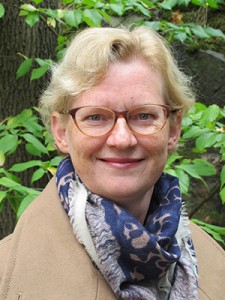Kremlin guidelines for cultural policies define tools for cultural marginalization in the name of “Russian mentality”, writes Sanna Turoma.
 While writing an afterword for the recent Finnish translation of Roman Senchin’s critically acclaimed The Yeltyshevs (2009), I was struck by a scene in which the main character Valentina Viktorovna returns home to a Siberian village after visiting her son in prison. On the bus she happens to hear the president’s [Dmitry Medvedev] speech on radio. His “energetic, youthful and determined voice” raises optimism and faith in Valentina: “Russia is a country which has chosen democracy by its people’s own will. Russia has chosen its path and will decide independently, by generally accepted rules of democracy, how the principles of freedom and democracy can be carried out, considering the historical, geopolitical, and other particularities that characterize Russia…”
While writing an afterword for the recent Finnish translation of Roman Senchin’s critically acclaimed The Yeltyshevs (2009), I was struck by a scene in which the main character Valentina Viktorovna returns home to a Siberian village after visiting her son in prison. On the bus she happens to hear the president’s [Dmitry Medvedev] speech on radio. His “energetic, youthful and determined voice” raises optimism and faith in Valentina: “Russia is a country which has chosen democracy by its people’s own will. Russia has chosen its path and will decide independently, by generally accepted rules of democracy, how the principles of freedom and democracy can be carried out, considering the historical, geopolitical, and other particularities that characterize Russia…”
The president’s high-flown speech about Russia’s Sonderweg and Valentina’s candid observations that follow juxtapose the Kremlin’s vision with a grass-roots provincial reality. The Yeltyshevs is a description of post-socialist trauma; it is a narrative of de-modernization in which the characters descend from the institutions of education and order to a foraging economy.
A similar rhetoric of political sovereignty and cultural distinctiveness to that assigned by Senchin to the president’s speech informs a decree (ukaz) signed by President Putin on 24 December 2014. The decree articulates the guidelines for Russia’s cultural policy. Although not intended as fiction, the text event does seem to draw heavily on the imaginary, especially the imagined community of Russians (rossiiany).
The draft of the decree was publicized widely in the Russian media by Vladimir Medinsky, the Minister for Culture, in the spring of 2014. The Ministry’s website invited commentary on the draft. Many Russians involved in cultural production voiced critical views. The final document defines Russia’s civilizational uniqueness, informed by the country’s geopolitical location, and the centrality of “traditional family values” in maintaining that uniqueness.
The document understands culture as a system of values and institutions, which produce and preserve these values. It is seen as a fundamental force for Russia’s “civilizational originality” (samobytnost’). It is the foundation of a unified “Russian mentality” (mentalitet rossiiskogo naroda), the production of which is the goal of Russia’s cultural policy, as outlined by the decree. It makes great claims about the ability of culture to unify Russia’s “multinational” people and instill patriotism and national pride in them.
Similar views about historical and cultural homogeneity, based on an ideal of a unified national mentality, are voiced by various politicians in many European countries. But what is noteworthy about the Russian document is the fact that it incorporates cultural policies into a “national security strategy”. This strategy, launched in 2009, is emerging as an overarching matrix of Russia’s social and political reforms.
It is too early to tell how the decree will be manifested in legislation and how it will affect cultural institutions and administration in the long run. It is equally hard to tell how Russian citizens, such as the fictional but very realistic Yeltyshevs, will benefit from cultural policies whose goal is to “define the main outlines of national mentality”. These stories are still not written.
In their current form, the Kremlin guidelines offer tools for practicing nationalistic identity politics. The decree lends itself to use as a legislative ideology for institutionalizing cultural policies as a vehicle for cultural marginalization in the name of “Russian mentality”, canonical high culture, and national security
Sanna Turoma is an Academy of Finland Fellow and the Chair of the Organizing Committee of the 2015 Aleksanteri Conference, “Culture and Russian Society”.